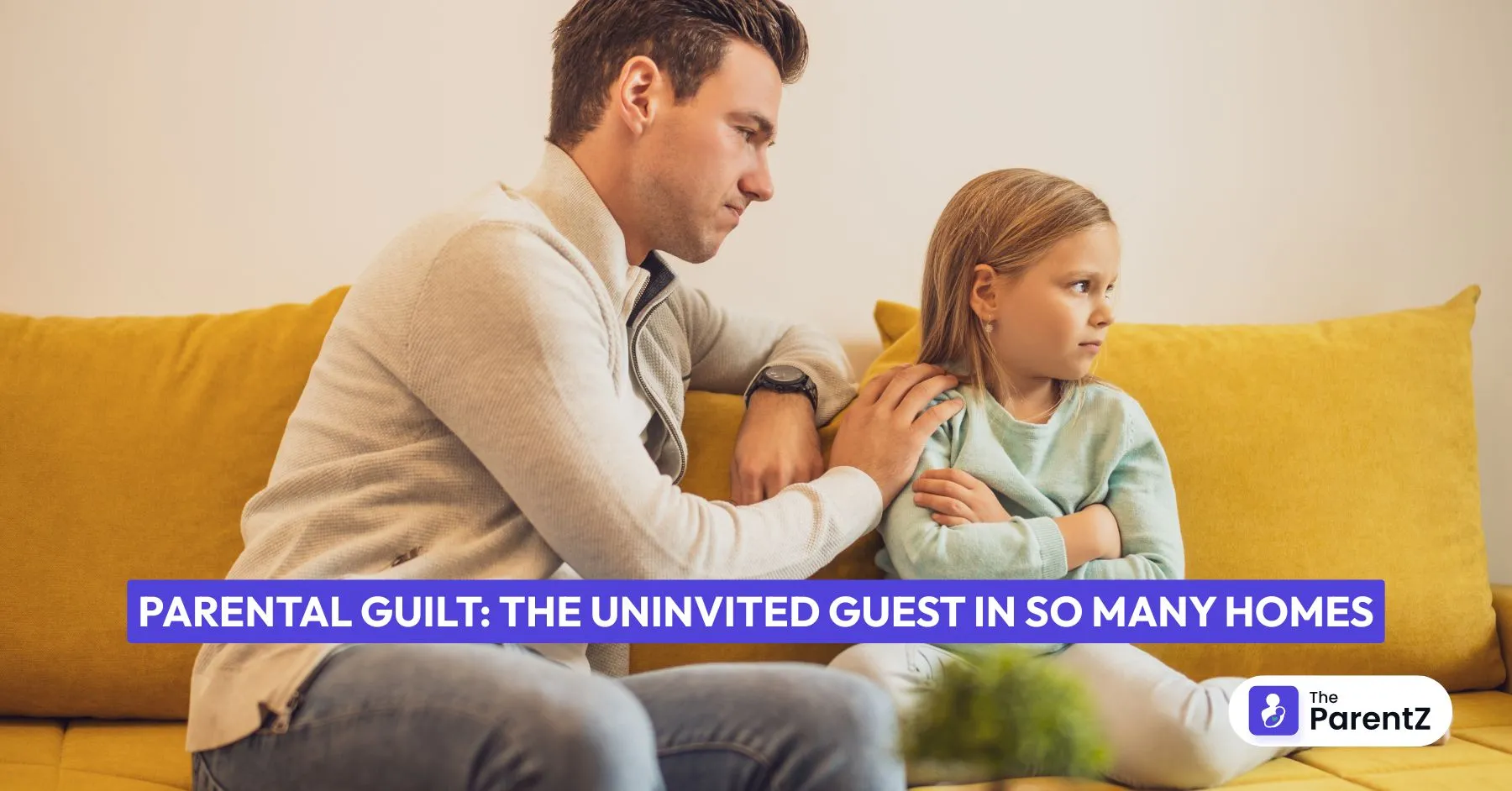Introduction
It starts early. Maybe it’s the first time you let your baby cry a little too long, or the afternoon you lost your patience. Maybe it’s the missed school play, the store-bought cupcakes, or the screen time you allowed just to get a break. Whatever the trigger, guilt slips in—softly at first, then louder, until it becomes a near-constant background hum in the parenting journey.
Parental guilt is everywhere. And yet, it’s rarely talked about with honesty. We may share photos of milestones and smiles, but we rarely post about the emotional weight we carry behind the scenes.
Why Does Guilt Arrive So Early—and Stay So Long?
From the moment a child enters our lives, so do the expectations—both internal and external. Be present but independent. Be nurturing but firm. Do it all, but don’t burn out. It's an impossible balancing act, made worse by social media’s curated snapshots of perfect parenting.
Many parents go to bed replaying their perceived failures: the harsh tone, the forgotten snack, the work call taken during playtime. The guilt becomes habitual—a way of measuring whether we're “doing it right.” But who decided what “right” even means?
The Invisible Standards We Hold Ourselves To
We inherit ideas of “good parenting” from family, culture, and society. Often, we don’t even realize how many of our beliefs are based on outdated ideals or impossible standards. “A good mom always puts her kids first.” “A real dad never shows weakness.” “You only get one shot at childhood.”
These messages sound noble, but they leave no room for error—or humanity.
The truth is: parenting isn’t a performance. It’s a relationship. And like all relationships, it’s messy, imperfect, and full of growth.
The Guilt of Working Parents vs. Stay-at-Home Parents
Parental guilt doesn’t discriminate. Working parents often feel like they’re missing too much. Stay-at-home parents may feel guilty for not contributing financially or not “loving every moment.” Single parents carry their own heavy layers of guilt. And those with support systems sometimes feel guilty for having it “easier” than others.
This isn’t a competition of who sacrifices more. But guilt has a way of turning even the best intentions into self-judgment.
When Guilt Becomes the Default
It’s one thing to feel guilty occasionally. But when guilt becomes the emotional wallpaper of our parenting experience, it starts to shape how we see ourselves—and our children.
We might overcompensate by overindulging. Or we might pull away out of fear of doing more harm. Guilt rarely leads to clarity. More often, it clouds our ability to parent with confidence and joy.
What Guilt Might Be Trying to Tell You
Not all guilt is bad. Sometimes, it’s a sign that our values are being challenged. If you yelled and feel awful about it, that’s your conscience asking you to slow down next time. If you feel uneasy about your work-life balance, maybe it’s time to reassess priorities.
But here’s the difference: helpful guilt says, “I want to do better next time.” Toxic guilt says, “I’m a bad parent.”
One invites change. The other invites shame.
Strategies to Quiet the Inner Critic
- Talk about it openly. Guilt thrives in silence. Share your feelings with someone you trust. Chances are, they feel it too.
- Reframe the moment. Instead of, “I failed today,” try, “Today was hard, and I did my best.” Progress, not perfection.
- Remember: kids are resilient. Children don’t need perfect parents. They need present ones. Apologies, repairs, and love go a long way.
- Step back from comparison. What works for someone else may not work for your family—and that’s okay.
- Model self-compassion. Show your children what it looks like to be kind to yourself. It’s one of the most valuable lessons you can give them.
You Are Enough
In a world that constantly whispers, “Do more,” it’s easy to feel like nothing you do is quite enough. But parenting isn’t measured in grand gestures. It’s found in the small, ordinary moments—brushing hair, cutting crusts off sandwiches, showing up even when you're tired.
The guilt may never fully go away. But with time, perspective, and gentleness, it can become quieter. And in its place, a new voice can emerge: one that says, “You’re doing okay. You care deeply. That’s what matters.”
Conclusion
Parental guilt may be an uninvited guest, but it doesn’t have to move in and take over your home. You’re allowed to feel it, acknowledge it, and still move forward with love, messiness, and grace. Because at the end of the day, parenting isn't about being perfect—it's about being present, being real, and continuing to try.





Be the first one to comment on this story.